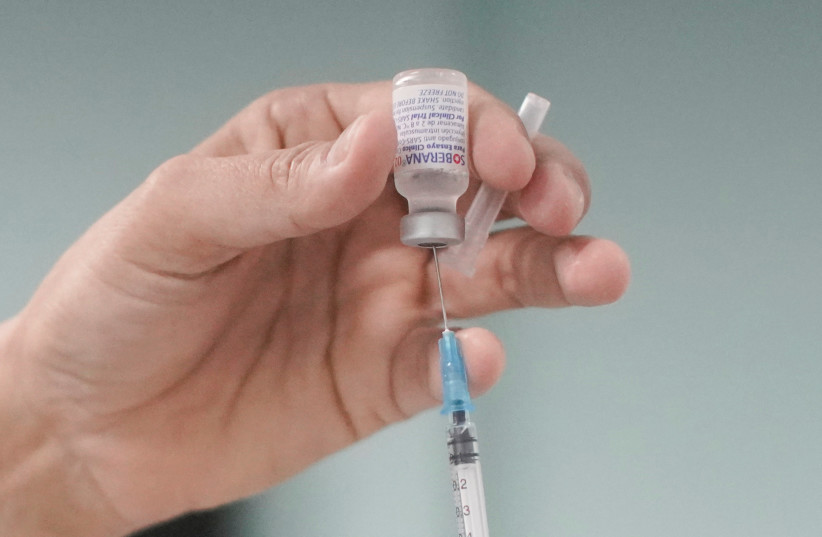by Maayan Jaffe-Hoffman
Prof. Ami Schattner: “Initial results are promising to say the least.”
 |
Saffron
(photo credit: PIXABAY)
|
An ancient Greek drug derived from the saffron plant could improve the treatment of people with severe COVID-19 and reduce the COVID mortality rate by as much as 50%, according to a report published earlier this month in the European Journal of Internal Medicine by an Israeli researcher from the Hebrew University of Jerusalem and Hadassah Medical School.
The
drug, colchicine, dates back thousands of years to ancient Egypt, where
it was known for its special healing properties. It is one of a few
medicines that survived until modern times. Most recently, it has been
used to treat and prevent inflammation caused by gout that can lead to
painful arthritis and Familial Mediterranean Fever (FMF), which is
common among Jewish people of North African descent.
Prof.
Ami Schattner researched and analyzed all patients treated in
controlled trials of this ancient drug for the past 20 years. He found
that among its uses and potential uses, colchicine also appears
effective in treating COVID-19.
So
far, four controlled studies of around 6,000 coronavirus patients have
been published on the effect of colchicine, Schattner said, each showing
a “significant improvement in severe coronavirus indices and, most
importantly, there was a decrease in mortality by about 50% compared to
those who were not treated with colchicine.”
The
drug is cheap, a small half-milligram dose is needed per day, and it
has already been proven safe to use, he said, making colchicine “an
important discovery that could significantly contribute to improving the
morbidity and mortality of many patients, if confirmed in further
studies.”

The
drug is also well-tolerated, the doctor said. The only side-effects in
some patients can be bouts of diarrhea; about 10% of patients
discontinue the use of the drug for this reason.
The
drug has been tested in the treatment of the COVID-19 pandemic around
the world, including in Canada, Greece, South Africa, Spain and Brazil.
Many of the tests were double-blind placebo studies, increasing their
likelihood of accuracy.
“The results were impressive,” he said.
Colchicine was first mentioned in an ancient Egyptian papyrus dating back to 1550 BC, even before the Jewish people left Egypt,
according to the biblical story. Later, it was used by physicians in
ancient Greece, in the Byzantine period and then by Arab physicians more
than 1,000 years ago.
Some
50 years ago, using the drug to treat FMF was verified by researchers
at Sheba Medical Center at Tel Hashomer and Hadassah, not only against
the sharp attacks associated with the disease and their prevention, but
also in protection against a serious complication of FMF – amyloidosis,
which affects the kidneys.
More
recently, several studies have started to prove its effectiveness in
the treatment of acute pericarditis (swelling around the heart, and in
the prevention of post-cardiac injury syndrome and atrial fibrillation
following cardiac surgery.
“As
is well known, patients who have had a heart attack are at a
significantly increased risk of recurrence and stroke, and these are
very many patients,” Schattner said. “Studies from recent years have
found that thanks to its anti-inflammatory activity on the
atherosclerotic layers in the arteries, colchicine in small daily doses
is able to effectively protect these patients.
“The
level of protection was to the point of preventing about half of the
recurrent events, and this impressive beneficial effect was also
achieved in patients who had already undergone therapeutic
catheterization and had taken optimal preventive treatment by aspirin
and statins,” he added. “This is important news for a very large number
of patients.”
When can the drug start being used to help COVID patients?
Further
randomized controlled trials are needed to confirm these preliminary
results, according to Schattner, which he believes will likely lead to
expanding indications for low-dose colchicine. But he said there is no
reason that the drug could not start being used right now.
“Even
though initial data on the effect of colchicine on coronavirus patients
is very promising, more patients need to be in randomized controlled
trials,” Schattner said. “But that would not prevent me from using the
drug already in patients with high risk, to hopefully lower their
chances of developing severe disease.
“The drug is low-cost for the patients and the community,” he continued.
“By using it in corona patients, we have nothing to lose and much to
gain.”
Maayan Jaffe-Hoffman
Source: https://www.jpost.com/health-and-wellness/ancient-greek-drug-could-save-lives-of-covid-patients-israeli-scientist-688730
No comments:
Post a Comment